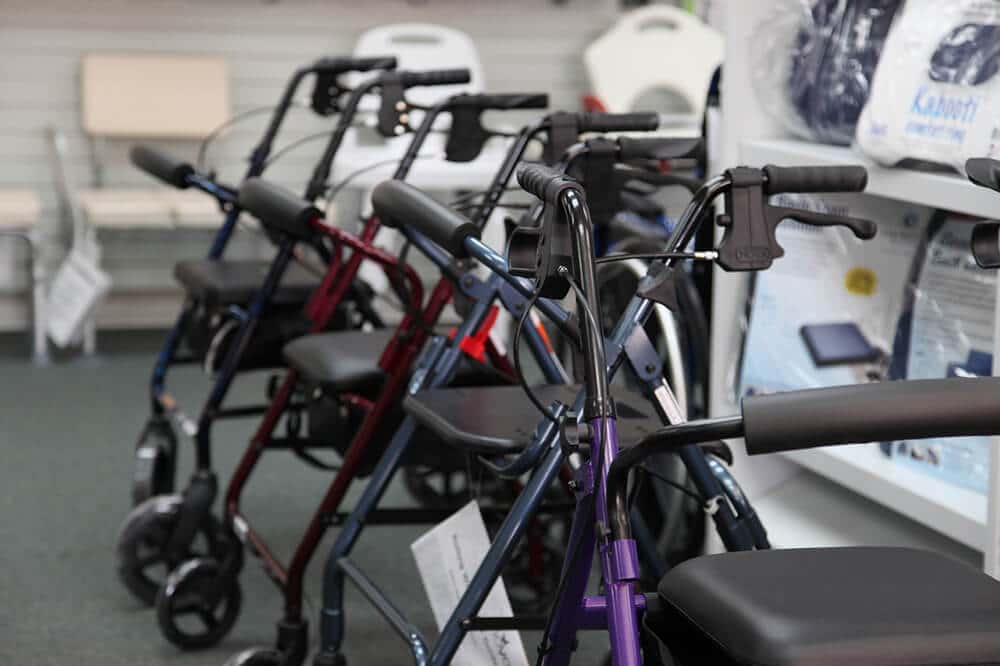When residents of a nursing home suffer a fall, it can have a catastrophic effect on their health. Sometimes, falls are fatal. Even when they aren’t, they can result in traumatic brain injuries, hip fractures, and other painful and debilitating outcomes.
Of the roughly 1.6 million people who live in nursing facilities around the U.S., about half suffer at least one fall annually. Nursing homes must do a better job to protect residents from falls.
Why Do Falls Frequently Occur in Nursing Homes?
Advanced age and various medical conditions make residents of nursing homes more vulnerable to falling. They may have issues with their skeletal, muscular, or nervous systems that undermine their overall strength and weaken their balance and gait. Sometimes, they take medications that make them more susceptible to a fall.
Many falls, however, can be prevented with better care and a safer environment. In various ways, negligence, improper support, and a lack of prevention contribute to the high rate of falling in nursing homes.
How Can Nursing Homes Protect Residents From Falls?
Here are some ways that nursing homes can better protect residents from falls:
Sufficient Staffing
When nursing homes are understaffed, residents don’t receive the attention, care, and supervision they need.
During certain times of the day, residents are more likely to need assistance. These include the mornings, when they rise and get dressed, and the evenings, when they prepare for bed. Meals, visits to the toilet, and bathing are also occasions that call for extra support.
Improved Training and Higher Standards of Conduct for Staff
Have nursing home employees received the appropriate training for resident care, including how to prevent falls and transport residents safely? Also, are any staff members treating residents with carelessness, neglect, or aggression?
Unacceptable behaviors from staff include:
- Completely ignoring calls for assistance or taking an unjustifiable amount of time to respond.
- Rushing residents through various tasks.
- Moving residents around with too much force and speed, including yanking on them and shoving them.
- Displaying verbal or physical hostility.
- Leaving residents unattended in situations where they require supervision and help.
- Showing up to work intoxicated.
Reduced Clutter
Falling is more likely in an environment filled with obstacles. Examples include equipment left in a corridor and small, low pieces of furniture filling up a room. Piles of clothes, boxes, and stray shoes are other potential hazards.
Clutter reduction can involve completely removing unnecessary items or stowing them safely against a wall and out of the way.
Adequate Footwear
Residents are sometimes left to walk in footwear that’s poorly fitted or that has poor traction. Each resident needs to be assessed for gait and balance issues and receive suitable footwear.
Better Lighting
Poor lighting in rooms, corridors, and stairways increase the chances of a fall. The nursing home needs to provide residents with well-lit spaces and give them an accessible way to turn on a light when they need to.
Safer Flooring
If a nursing home contains slick, cracked, or uneven floors, residents are at a higher risk of falling. Other floor hazards include rugs that slide underfoot and carpets with edges that are easy to trip over.
Bathrooms are especially risky areas. Floors need to be promptly dried after bathing, and tubs and showers should contain slip-resistant surfaces.
High-Quality Assistive Devices
Many residents use canes, walkers, or wheelchairs. The extent to which they rely on a device varies from one resident to another. Regardless, these devices need to be in good condition and provide consistent support.
For example, wheelchairs need to brake properly and remain steady. Otherwise, residents can easily slip and fall when standing up from the wheelchair or lowering themselves into it.
It’s also necessary to train residents in how to safely use their devices. If someone has never before relied on a cane, for instance, they should receive guidance on how to use it and on what to avoid doing.
Secure Railings and Grab Bars
Railings and grab bars, such as the ones near toilets, need to provide solid support. They need to be at the right height and easy to hold. Nursing home management should evaluate their interior spaces for locations where railings are missing or poorly maintained.
Proper Medical Evaluations and Preventative Interventions
When it comes to falling, residents aren’t all at the same level of risk. A nursing home needs to regularly evaluate them for physical and cognitive issues that increase the chances of a fall.
New medications and other medical changes require a risk reassessment. Residents need to be informed about potential side effects of medical treatments. They should be encouraged to discuss their symptoms, such as dizziness and faintness.
Prevention is also critical for reducing the risk of falls. For example, when nursing homes have high-quality exercise programs, their residents are more likely to show improvements in muscle tone, balance, and gait. Nursing homes can work with residents on techniques that are specific to fall prevention.
Contacting a Nursing Home Abuse Lawyer
Even when they aren’t fatal, injuries from falls can lead to severe pain, disabilities, significantly diminished quality of life, and reduced independence. The costs of medical care and the toll on physical and emotional health are substantial.
If a fall in a nursing home has affected you or a loved one, don’t hesitate to reach out to a lawyer who is experienced in nursing home abuse law. An experienced and compassionate lawyer from Shrager, Sachs, & Blanco can help you evaluate the situation and discuss your options for care, support, and fair compensation. Reach out to our Philadelphia firm to learn more.









